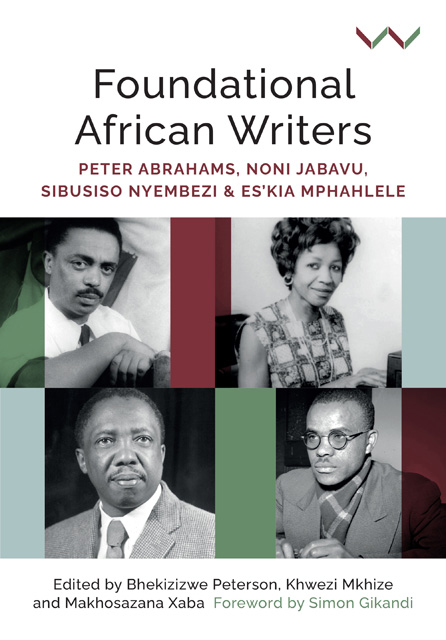Book contents
- Frontmatter
- Contents
- List of illustrations
- Foreword
- Acknowledgements
- Tribute to Professor Bhekizizwe Peterson
- Introduction
- Part I Remapping and Rereading African Literature and Cultural Production
- Part II South Africa and Fugitive Imaginaries
- Part III In the Eye of the Short Century: Diaspora and Pan-Africanism Reconsidered
- Contributors
- Index
14 - Es’kia Mphahlele, Chemchemi and Pan-African Literary Publics
Published online by Cambridge University Press: 01 September 2022
- Frontmatter
- Contents
- List of illustrations
- Foreword
- Acknowledgements
- Tribute to Professor Bhekizizwe Peterson
- Introduction
- Part I Remapping and Rereading African Literature and Cultural Production
- Part II South Africa and Fugitive Imaginaries
- Part III In the Eye of the Short Century: Diaspora and Pan-Africanism Reconsidered
- Contributors
- Index
Summary
Es’kia Mphahlele, popularly known as ‘Zeke’, is one of the most important African intellectuals of the mid-twentieth century. As a South African exile during this period, he made a singular contribution to the creation of modern African literature through his involvement in literary events, publications and cultural organisations across South, East and West Africa. He is one of the few figures of the period to straddle what was called the ‘Sophiatown Renaissance’, the ‘Drum generation’ of writers in South Africa, and early modern African literature. More specifically, his involvement in the small magazines of the period – Transition, Black Orpheus, New African, The Classic and Lotus, amongst others – created literary publics and corridors of storytelling across the continent. In addition, his co-founding of the Mbari Artists’ and Writers’ Clubs in Nigeria helped create conditions for Pan-African literary and cultural publics, in ways that directly engaged with decolonisation and postcolonial nationalism at a time when the Cold War was reconfiguring the world into new imperia.
Using archival sources, this chapter returns to Chemchemi Cultural Centre, the organisation that Mphahlele founded in Kenya in September 1963, around the time of Kenya’s independence from Britain, but also when continental Pan-Africanism was shifting and widening its gaze from Accra and Lagos to Nairobi and Kampala in East Africa. The platform of Chemchemi allowed Mphahlele a different horizon of expectation with regards to Pan-African mobilisation in East Africa. It helped to begin setting up literary publics in Kenya in ways that fostered dialogue within this region, the continent and its diasporas. The chapter begins by highlighting the context of the Cold War as creating certain conditions of cultural value within which Mphahlele’s involvement with Chemchemi and other cultural organisations had to navigate. It then shifts attention to the Chemchemi Newsletter, a regular publication curated by Mphahlele, and through which he was able to articulate and translate the Pan-Africanist cultural practices of the organisation to a broader East African and continental audience. Using this platform Mphahlele and Chemchemi were able to reflect, conceptualise and create a space in which high nationalism in Africa encountered anti-apartheid imagination, decolonisation and the diaspora legacies of Pan-Africanism.
- Type
- Chapter
- Information
- Foundational African WritersPeter Abrahams, Noni Jabavu, Sibusiso Nyembezi and Es'kia Mphahlele, pp. 301 - 328Publisher: Wits University PressPrint publication year: 2022



